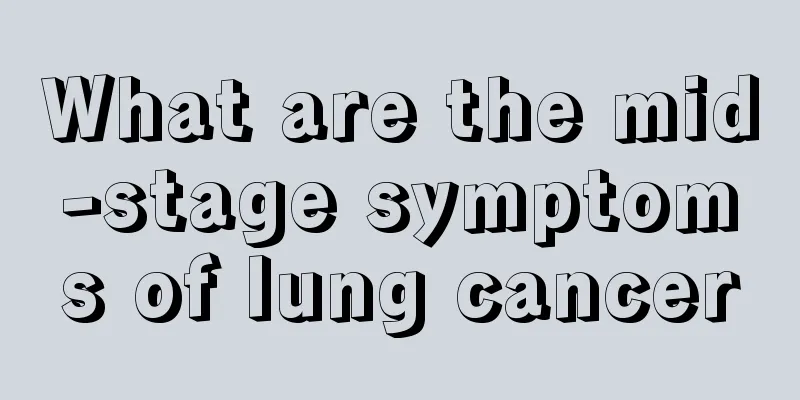How to care for pain in advanced liver cancer to relieve pain? Nursing measures for pain in advanced liver cancer patients

|
What are the nursing measures for pain in patients with advanced liver cancer? The nursing care for pain in patients with advanced liver cancer should first pay attention to observing the nature and duration of the pain and the range of the patient's tolerance, observing the patient's accompanying symptoms, whether there are symptoms such as nausea and vomiting, and using analgesics according to the three-level analgesia method, such as: The first stage starts with non-opioid analgesics, such as aspirin, chlorpromazine, chlorpromazine, indomethacin suppositories, etc. If the pain cannot be relieved, weak opioid analgesics such as codeine and propoxyphene can be added on this basis; if the pain is severe, strong opioid analgesics such as meperidine and MS Contin can be used. Now there is a new patch, Durogesic, which can relieve pain for up to 72 hours. Secondly, pay attention to changes in the patient's vital signs. Once severe pain and peritoneal irritation signs occur, be alert to liver rupture and be prepared for rescue. In addition, the nursing measures for pain in patients with advanced liver cancer should also actively guide patients on how to relieve pain, including gentle local massage without using force, otherwise it may easily cause the tumor to rupture or spread; the diet should be light, high-protein, low-fat, non-irritating and easily digestible food, not too full, small meals and frequent meals, keeping bowel movements smooth, reducing abdominal distension, so as not to induce pain; keeping emotions stable, as anxiety can easily cause pain to deepen, etc. Finally, medical workers and patients' families should pay attention to listening to patients' stories patiently, giving them appropriate comfort, reducing their psychological burden, and increasing their pain threshold. In short, patients with advanced liver cancer should be given timely analgesic treatment and good pain care. At the same time, the treatment of advanced liver cancer should pay attention to the implementation of a comprehensive treatment plan based on the patient's specific situation, combining surgery with chemotherapy, autologous immune cell therapy, etc., to improve the patient's autonomous anti-cancer immunity as much as possible, improve the quality of life of advanced patients, and prolong the effective survival period. |
Recommend
Do normal people have Helicobacter pylori?
Generally, patients with Helicobacter pylori have...
The stye is a hard lump that won't go away
We all know that stye is a relatively serious eye...
What are the best eye treatments?
Ophthalmic diseases are relatively prevalent dise...
Is it suitable for pregnant women to eat loofah?
Luffa is very nutritious. It can be used for cook...
What are the diagnostic methods for glioma
Generally, diseases are initially diagnosed based...
What can I do if I have fatty liver
Among many clinical diseases, fatty liver is one ...
Dizzy and want to sleep
Why do I feel dizzy and sleepy? Modern people hav...
Why does the chest tear pain after heart bypass surgery?
There are many coronary arteries around the heart...
Can floaters be treated with surgery?
There are many ways to treat floaters, and surgic...
The most important health care measures for brain cancer in clinical practice
Among the many cancer diseases of the brain, brai...
What should be paid attention to in percutaneous interventional treatment of liver cancer? 5 aspects should be strengthened
After percutaneous interventional treatment for l...
Can bitter melon and mushrooms be eaten together?
Mushrooms are particularly common fungi and are r...
How to repair damaged nasal mucosa
The damaged nasal mucosa can be repaired by apply...
Can thyroid cancer be cured by taking medicine
Many thyroid cancer patients are afraid of having...
What to eat if hemoglobin is low
The function of red blood cells is mainly perform...









